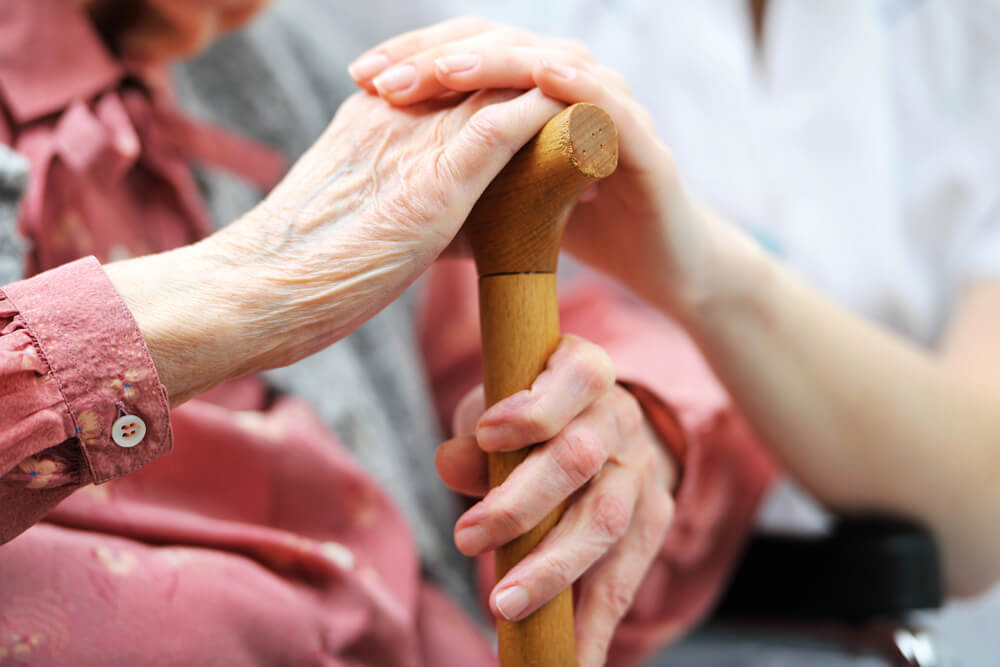When a family member becomes a resident of a nursing home, you trust the facility staff to treat your loved one with the utmost respect. When it seems like your loved one is not receiving the care they need, though, you need to know what to do if you suspect nursing home neglect.
The National Council on Aging reports that as many as 5 million older Americans experience abuse each year. Our team at Koonz, McKenney, Johnson & DePaolis, LLP, is passionate about combating that disturbing statistic by helping families in Maryland, Virginia, and Washington, D.C., who become the targets of wrongful behavior in nursing homes.
Suspect Nursing Home Neglect? Watch For These Signs

It is important to watch for any potential signs of abuse or neglect when your loved one is staying in a nursing home, even if you think the facility and its staff are trustworthy.
If you have even the slightest suspicion that personnel within the nursing home are neglecting your family member, do not hesitate to take a closer look for signs of wrongful behavior. In particular, pay close attention to your loved one’s mental condition, their overall physical condition, and the state of their living space.
Some telltale signs of abuse or neglect in an assisted living facility include:
- Bed sores
- Unexplained bruises or injuries
- Dehydration or malnutrition
- Behavioral changes or a reluctance to speak
- A clear lack of care provided
When you notice any of these signs, a nursing home abuse lawyer can help you figure out what to do if you suspect nursing home neglect.
Talk to Your Loved One
Before taking matters into your own hands, consider talking to your loved one in the nursing home. Be sure to do this privately, however, as it is important both to respect their privacy and to avoid provoking any malicious staff members who might attempt to retaliate.
Make note of any issues that your loved one tells you about. Even if they claim there are no issues, be observant of their behavior and tone. If abuse is taking place, your family member might be hesitant to talk about it openly.
Also consider talking to nursing home staff about the problem, if your loved one indicates they would be comfortable with that. They may have staff members they trust, despite the neglectful or abusive behavior of a few. If your family member seems anxious or nervous about the entire staff or the facility as a whole, respect their feelings and take the matter directly to higher authorities who can help.
Report Neglectful or Abusive Behavior

Nursing homes often have their own internal processes you can follow to help you understand what to do if you suspect nursing home neglect. In the case of emergencies or particularly harmful neglect, though, it may be appropriate to take more drastic action.
If your family member is in immediate danger, call 911 right away. When there is no imminent threat, you can report the abuse or neglect to your state’s adult protective services agency.
Filing a complaint to the proper authorities is an important step in making sure a negligent facility faces justice. If you decide to pursue a legal case to recover damages for your loved one’s pain and suffering, the formal complaint and any ensuing investigations can help prove that you took necessary action and that wrongful behavior did in fact occur.
Your choice to report harmful negligence at the nursing home may even help other families avoid a similar situation, as these reports may become public knowledge.
Collect Evidence To Support Your Claim
If you choose to pursue legal action against the nursing home, you may have to carry the burden of proving that negligence was taking place. Once you know what to do if you suspect nursing home neglect, you can collect the right kinds of evidence to give your claim the best chance of reaching a favorable outcome:
- Medical records about any resulting injuries
- Records of any conversations with nursing home staff
- Photos of your loved one’s injuries or their neglected living space
- Financial records that may indicate financial abuse
- Witness statements from other residents or staff members
Keep in mind that you are not alone when seeking justice for your abused loved one. It can be difficult to find the right evidence and speak to unfamiliar individuals on your own, but a nursing home abuse lawyer can carry the burden for you and ensure that your case proceeds smoothly.
Consult a Nursing Home Abuse Lawyer
It can be shocking to learn that your loved one suffered from abuse or neglect in a place where they should have been safe.
Your top priority in this situation is to safeguard your family member’s well-being, but it is not easy to focus on personal matters when you are trying to navigate a legal case. Consult with a nursing home abuse lawyer as soon as possible so you do not have to worry about what to do if you suspect nursing home neglect.
A nursing home abuse lawyer at Koonz, McKenney, Johnson & DePaolis, LLP, can support your case by:
- Investigating the circumstances of abuse and neglect in the nursing home.
- Collecting evidence to establish that abusive behavior took place
- Helping you file a formal complaint and any other necessary paperwork
- Negotiating with the facility’s insurance company to secure a monetary settlement
- Representing you and your family in court if necessary
Neglect and abuse can have disastrous effects on an elderly individual’s physical and mental health. Involving an attorney early on can help you nip the problem in the bud and ensure you can more quickly put the matter behind you. Reaching a swift yet favorable settlement gets appropriate care for your loved one that much more quickly.
Contact Our Team if You Suspect Nursing Home Neglect

Not only can nursing home neglect be physically harmful, but it is also a sensitive matter for your loved one forced into a vulnerable situation.
You need a legal team that can help you navigate what to do if you suspect nursing home neglect while also giving your family the care and respect you deserve every step of the way. Contact our lawyers at Koonz, McKenney, Johnson & DePaolis, LLP, today for a free consultation. We collect no legal fees until you receive a settlement from the party who wronged your family.

